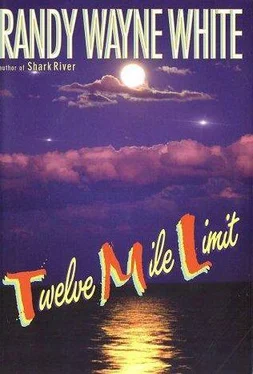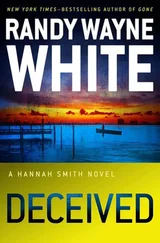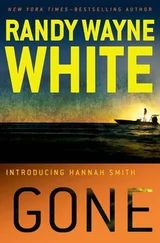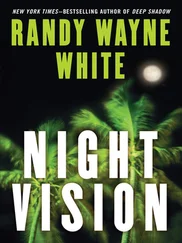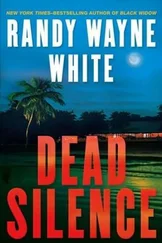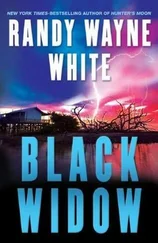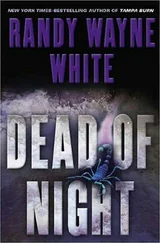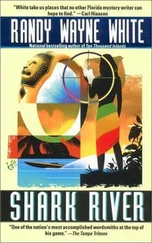Randy White - Twelve Mile Limit
Здесь есть возможность читать онлайн «Randy White - Twelve Mile Limit» весь текст электронной книги совершенно бесплатно (целиком полную версию без сокращений). В некоторых случаях можно слушать аудио, скачать через торрент в формате fb2 и присутствует краткое содержание. Жанр: Триллер, на английском языке. Описание произведения, (предисловие) а так же отзывы посетителей доступны на портале библиотеки ЛибКат.
- Название:Twelve Mile Limit
- Автор:
- Жанр:
- Год:неизвестен
- ISBN:нет данных
- Рейтинг книги:4 / 5. Голосов: 1
-
Избранное:Добавить в избранное
- Отзывы:
-
Ваша оценка:
- 80
- 1
- 2
- 3
- 4
- 5
Twelve Mile Limit: краткое содержание, описание и аннотация
Предлагаем к чтению аннотацию, описание, краткое содержание или предисловие (зависит от того, что написал сам автор книги «Twelve Mile Limit»). Если вы не нашли необходимую информацию о книге — напишите в комментариях, мы постараемся отыскать её.
Twelve Mile Limit — читать онлайн бесплатно полную книгу (весь текст) целиком
Ниже представлен текст книги, разбитый по страницам. Система сохранения места последней прочитанной страницы, позволяет с удобством читать онлайн бесплатно книгу «Twelve Mile Limit», без необходимости каждый раз заново искать на чём Вы остановились. Поставьте закладку, и сможете в любой момент перейти на страницу, на которой закончили чтение.
Интервал:
Закладка:
In the gorgeous country town of Arcadia, a Brahma bull busted out of its loading ramp and gored three rodeo fans as they walked to their cars, but the fans refused the entreaties of clamoring personal injury attorneys to sue. As one fan told a reporter from the St. Petersburg Times, “Rodeo’n’s risky business whether you’re in the ring or in the stands. That’s the way we like it.”
And on the main sawgrass plain of the Everglades, immigration police arrested forty-seven illegal aliens of various nationalities who’d been jettisoned off the uninhabited Ten Thousand Islands and left to wade ashore by flesh merchants who’d smuggled them into U.S. waters from Colombia. The illegals were dehydrated, cut all to hell by the coral rock that lies at the base of the sawgrass, and starving. In the November heat, many days without good water, it became a death march of sorts. Three of the weakest fell and were left to the vultures. Another died shortly after being hospitalized. One of the survivors, though, was quoted as saying, “Why did I risk my life to come to America? Because here I can live as a person, as an individual with dignity, not as a beast of burden. I am a woman, not a thing!”
It was the sort of story that gave one hope.
The effects of the Seminole Wind tragedy did not fade nearly so quickly on the islands of Sanibel and Captiva nor on the islands and water places that comprise a back bay community that is separate from the rest of Florida’s Gulf Coast communities. Talk of the three missing divers continued to be the main topic of conversation on Cedar Key, Siesta Key, and Venice Beach, on Don Pedro, Palm Island, and Gasparilla, on Cabbage Key, Useppa, and Estero Island, on Vanderbilt Beach, Bonita Beach, and among the boating community of Naples, too.
The refrain was familiar: How was it possible that three adults in wet suits and inflated vests were not found? It just didn’t make sense.
At Dinkin’s Bay Marina and Jensen’s Marina, the pain was palpable, so much so that our communal Thanksgiving dinner was more like a wake. Which is why, two weeks later at Dinkin’s Bay Marina’s traditional Friday party-the Pig Roast and Beer Cotillion, as it is called-Dieter Rasmussen, the German psychopharmacologist, herded us over to the big sea grape tree near the boat ramp and gave us an unrehearsed lecture on what might have been titled, “Dah Five Stages of Mourning When Vee Haf Lost a Loved Vun, Yah!”
Dieter is a wealthy German who loves the lazy, kicked-back lifestyle of Dinkin’s Bay, but he is also an internationally respected physician who’s an expert on human behavior and the chemistry of the brain. There were about fifteen of us, beers in hand, platters of steamed shrimp and fried conch on the picnic tables nearby, and at the center of our little group was Jeth. Jeth with the Cherokee black hair and Beverly Hillbillies accent, wearing filthy khaki fishing shorts and shirt, a plastic cup in his hand that we all knew was filled with vodka plus a little fresh grapefruit juice from the grapefruit tree behind the shell shop. Jeth, who’d once had a mild stutter, but who had not stuttered once since Janet’s disappearance. Not that he’d said much at all after our little fleet returned from Marco Island. He was sleeping too late, not bathing, and drinking way, way too much. Lots of red flags.
Standing while the rest of us sat, Dieter spoke in a guttural, booming Teutonic accent and used sweeping arm gestures. He outlined the list-numbness, yearning, and disbelief, then disorganization and denial, before anger kicked in. Then came the final stage, which was the beginning of the healing process.
Jeth, I was not surprised to realize, was displaying all the symptomatic stages except for the last.
He was not healing, nor did he seem to have much interest in allowing himself to heal. Janet was dead because he’d insisted that they date other people. She’d been with Michael Sanford on that Friday dive trip because Jeth had refused Janet’s pleas that the two of them go away for the weekend and attempt to sort out their problems.
That was the way he saw it, anyway, and why he was clearly punishing himself.
I listened to Dieter say, “Emotional numbness, if unresolved, can impair a person’s ability to be deeply intimate or to interact with people and situations in a spontaneous manner. In other words, my friends, you will not haf fun anymore! In fact, you will be the pain in my ass, and we have enough pains in my ass on this island!”
We all laughed. Everyone except Jeth, who yawned, took a gulp of his vodka, and watched a pelican collapse its wings in mid-flight and crash like a crate into the bay.
As Dieter talked about the second and third stages of mourning-deep yearning, disbelief, and then denial-I noticed a green Jeep Cherokee pull into the shell parking lot and a lean, leggy redhead get out. It was Amelia Gardner. I recognized her from photos I’d seen in the newspaper and from television, too. For the brief period in which the disappearances got a lot of press, she, as the lone survivor, was the center of attention-Gardner and the families of the three people who’d vanished. As a group, they’d held press conferences and commented jointly on what they believe happened to the pleasure boat Seminole Wind and had issued occasional opinions on the job the Coast Guard had done.
Their comments about the Coast Guard’s efforts were always positive, and deservedly so, yet their group hadn’t wanted the search to end when Dalton Dorsey and his superiors pulled the plug. I didn’t blame the families. Even if the three were dead-and there seemed no other possibility-their loved ones wanted the remains found because they desperately wanted and deserved closure.
As Dalton told me on the phone, “I don’t blame them one tiny little bit. But we’re in the business of saving lives, not recovering bodies. People don’t realize, you get out there in international waters, beyond the twelve-mile limit, there’s only so much help you can expect.”
Janet’s representative family consisted of a younger sister, Claudia Kohlerberg, who was a stockier, more athletic version of Janet. She’d traveled down from an Ohio farm town called Bryan, returned home two days after the search was ended, and now was back again to see to Janet’s personal effects. She’d been staying on the little blue houseboat at Jensen’s Marina: a nice woman with a strong smile and a jock-like informality, but who clearly showed the pain of her sister’s disappearance. There was a familial similarity both in appearance and depth of sensitivity, but Claudia did not give the impression of shyness, as Janet had. I had the feeling that, under happier circumstances, Claudia would have been the rowdy partier and the sisterly confidant of a long list of guy friends.
Claudia seemed to like Dinkin’s Bay, and we all liked her.
I wasn’t the only who recognized Amelia Gardner. Tomlinson and Ransom-who’d apparently hammered out a separate peace during their six days at sea-stood and walked toward the parking lot to intercept her. Dieter was saying, “When we lose someone we love, there is a deep yearning for what was lost followed by a desperate search for a way to replace that person.
“This can be a very dangerous time! We blame ourselves. We say, ‘If only I’d done something different. ’ We have many regrets. Then we do a very human but stupid thing. We rush into bad rebound relationships. We try to replace the person with alcohol or drugs. During this period, we feel we have a hole inside ourselves that cannot be filled, a thirst that cannot be quenched.”
I watched Tomlinson and Ransom introduce themselves to Amelia Gardner. Watched her nod as Ransom gestured to our little group, then as she leaned into her car and retrieved a small backpack, then walked with an easy-hipped grace across the white shell.
Читать дальшеИнтервал:
Закладка:
Похожие книги на «Twelve Mile Limit»
Представляем Вашему вниманию похожие книги на «Twelve Mile Limit» списком для выбора. Мы отобрали схожую по названию и смыслу литературу в надежде предоставить читателям больше вариантов отыскать новые, интересные, ещё непрочитанные произведения.
Обсуждение, отзывы о книге «Twelve Mile Limit» и просто собственные мнения читателей. Оставьте ваши комментарии, напишите, что Вы думаете о произведении, его смысле или главных героях. Укажите что конкретно понравилось, а что нет, и почему Вы так считаете.
